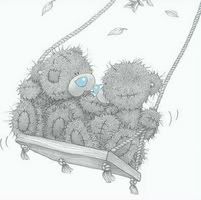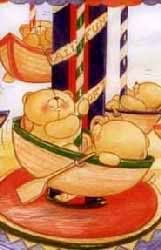The Plague
Today's hume and music lesson was actually productive- we covered an interesting story in Hume and I learnt about full notes, half notes seminotes and all that nonsense in music. Well, not exactly productive but at least something I understood.
In Hume today, we learnt about a plauge which struck the Athenians in the middle of a 27 year war. As their defence consisted of piling everybody into one central location behind thick walls, naturally in the event of a plague, the disease will spread rampantly(think Anthrax at Orchard road).
The interesting part about this story, is the question of human morality. According to Thucydides, the Athenians, seeing the 'rapid transitions produced by persons in prosperity suddenly dying', becamse resolved to 'spend quickly and enjoy themselves'. Furthermore they settled that 'present enjoyment, and all that contributed to it, was both honorable and useful.' Finally, 'fear of gods or law of man there was none to restraint them. As for the first, they judged it to be just the same whether they worshipped them or not, as they saw all alike perishing; and for the last, no one expected to live to be brought to trial for his offence, but each felt that a severer sentence had been already passed upon them all and hung each over their heads.'
In other words, in the society where they were more or less condemned to die, laws and morality broke down and humans reverted to basal human instincts of survival and lust.
This strangly reminds me of Lord of The Flies, where kids trapped on an island reverted to animal instincts. My Hume teacher when on to expound the possibility that, if there was a disease which caused the whole of the University to be quarantined and well, basically we would be left here to die, how would we react?
Confucius thinks that people are born to be good, but I think that what Thucydides wrote about is the real true nature of human. In the absence of laws and motivation to be good, people will tend naturally to be evil and selfish.
I really want to know what happens if a plauge hits the Shaolin temple in China.
In Hume today, we learnt about a plauge which struck the Athenians in the middle of a 27 year war. As their defence consisted of piling everybody into one central location behind thick walls, naturally in the event of a plague, the disease will spread rampantly(think Anthrax at Orchard road).
The interesting part about this story, is the question of human morality. According to Thucydides, the Athenians, seeing the 'rapid transitions produced by persons in prosperity suddenly dying', becamse resolved to 'spend quickly and enjoy themselves'. Furthermore they settled that 'present enjoyment, and all that contributed to it, was both honorable and useful.' Finally, 'fear of gods or law of man there was none to restraint them. As for the first, they judged it to be just the same whether they worshipped them or not, as they saw all alike perishing; and for the last, no one expected to live to be brought to trial for his offence, but each felt that a severer sentence had been already passed upon them all and hung each over their heads.'
In other words, in the society where they were more or less condemned to die, laws and morality broke down and humans reverted to basal human instincts of survival and lust.
This strangly reminds me of Lord of The Flies, where kids trapped on an island reverted to animal instincts. My Hume teacher when on to expound the possibility that, if there was a disease which caused the whole of the University to be quarantined and well, basically we would be left here to die, how would we react?
Confucius thinks that people are born to be good, but I think that what Thucydides wrote about is the real true nature of human. In the absence of laws and motivation to be good, people will tend naturally to be evil and selfish.
I really want to know what happens if a plauge hits the Shaolin temple in China.




0 Comments:
Post a Comment
<< Home